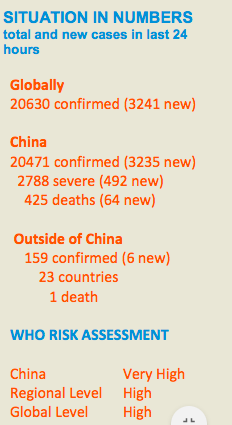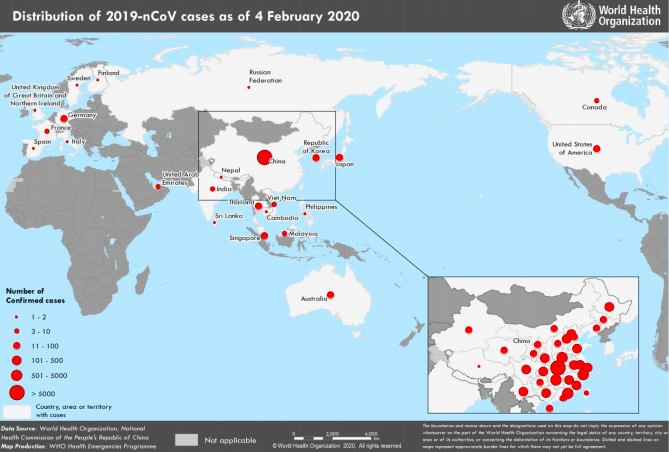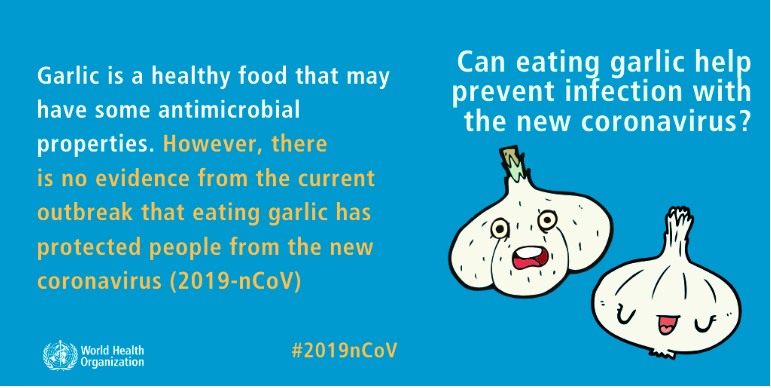Coronavirus has shocked the worldwide populous. The speed at which the disease spreads has been alarming. As of February 4th, 2020, there have been 20,630 confirmed cases of coronavirus. There have been 23 countries with confirmed cases of coronavirus, but the majority of these cases remain can be found in China and surrounding Southeast Asia. Of the 426 deaths from coronavirus, 425 of them are in China, where the outbreak originally occurred.
Government organizations are rushing to create protocols to slow the spread of the disease and create vaccines that they can give to people who are most at risk of dying like the elderly and those with compromised immune systems. One international organization that is being leaned on heavily is the World Health Organization (WHO). This international agency is at the forefront of trying to contain and educate people on coronavirus.

A Brief History
The World Health Organization was originally thought of during the formation of the United Nations in 1945 as countries wanted to create a global health organization. The WHO’s constitution was created in April of 1948 and now consists of 193 sovereign states. Throughout the years, the WHO has been instrumental in fighting global diseases. The organizations greatest achievement
Fighting Coronavirus
The main purpose of the World Health Organization is to educate the public. Creating a standard of protocols and actions that countries can follow to curb the outbreak and spread of disease. These protocols are being tailor-made to stop the spread of coronavirus and help China deal with its epidemic in Wuhan. The WHO works closely with all 193 states to create awareness about what the coronavirus is and even have daily situation reports. These reports not only give people exact information about how many confirmed cases of coronavirus there are but also give a risk assessment to surrounding regions and the rest of the globe. These two graphs below come directly from the February 4th situation report.


In these situation reports, the World Health Organization has also given general recommendations and advice for the public about how they can avoid contracting coronavirus.
- Avoiding close contact with people suffering from acute respiratory infections.
- Frequent hand-washing.
- Avoiding unprotected contact with farm or wild animals.
- People with symptoms of acute respiratory infection should practice cough etiquette.
- Within healthcare facilities, enhance standard infection prevention and control practices in hospitals, especially in emergency departments.
The WHO wants people to be properly educated on the subject of coronavirus. This also means disproving myths about coronavirus and the people carrying those diseases. There has been a lot of misinformation and ‘fake news’ surrounding the disease. There is widespread belief that any packages from China might not be safe. The World Health Organization wants people to know the virus cannot live long on objects like packages or letters so they are not considered dangerous. There are also a number of remedies that people think might protect them from getting sick. Using mouthwash or rinsing your nose with saline will not protect you against coronavirus and should not be relied upon as protection. The WHO even had to make a graphic that they shared on twitter to make sure people weren’t using garlic as a remedy for coronavirus as there is no evidence that it will be helpful.

State Protocols
For states that have not been infected, the World Health Organization has created a First Few Cases a Contact Investigation Protocol to help those nations safely and accurately test people who are potentially infected with the virus. Not only does the WHO recommend safe testing practices, but also proper ‘enhanced surveillance protocols’ to help investigate potential victims of coronavirus. One of the ways that the WHO works with countries is sharing information about people who have been traveling to Wuhan, Hubei province, or China within 14 days of showing symptoms of coronavirus. Public health officials work with the WHO to identify those people who have been infected and collect data about the people they have been in contact with not only so they can contain the disease, but they can judge how much contact is needed before it spreads. While information is perhaps the WHO’s most important resource, they also have a more tangible reach. The Director-General of WHO Tedros Adhanom made a series of promises about how his organization will be helping at-risk countries on Twitter today.
Viruses and diseases do not see borders, race, or religion. In our modern and globalized world, viruses can become a global pandemic in a matter of weeks. The WHO is meant to transcend politics and create a standard of practices and protocols to deal with such that exact kind of outbreak.